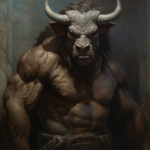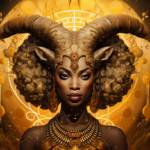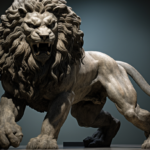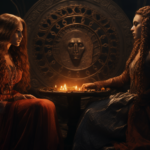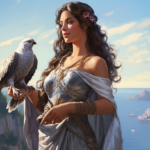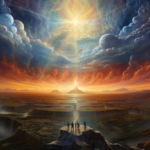Are you ready to dive into the fascinating world of chaos gods?
From the ancient tales of Greece to the captivating myths from around the globe, this article will take you on a thrilling journey.
Discover the chaotic deities worshipped by the Greeks, Norse, Egyptians, Mesopotamians, and Native Americans.
Prepare to be enchanted as you explore the rich tapestry of worldwide myths and legends surrounding these powerful and unpredictable beings.
Get ready to embark on an epic adventure!
Key Takeaways
- Chaos gods were revered by ancient cultures such as the Greeks, Norse, Egyptians, Mesopotamians, and Native Americans.
- Chaos gods represented the concept of chaos and the primordial state, associated with untamed forces of nature, creation, and destruction.
- Chaos gods played a crucial role in the cosmologies and mythologies of these ancient cultures, symbolizing the unpredictable and transformative nature of the world.
- Chaos gods influenced beliefs, art, literature, and religious rituals in these cultures, highlighting the interconnection between order and chaos.
Chaos Gods in Ancient Greek Mythology
In Ancient Greek mythology, chaos gods were believed to wield immense power and were revered by the people. These chthonic deities, also known as primordial beings, were associated with the concept of chaos, which was seen as the primal state of existence before the creation of the world. They were considered to be the first gods, existing before the Olympian gods came into being.
One of the most prominent chaos gods in Greek mythology was Chaos itself. Chaos was the formless void from which all things, including the gods, the world, and life itself, emerged. It was the source of all creation and the beginning of everything. Chaos was often depicted as a dark and swirling mass, representing the vastness and indescribable nature of the primordial state.
Another important chaos god was Nyx, the goddess of the night. Nyx was a powerful and mysterious deity, associated with darkness, sleep, and death. She was believed to be the mother of many other gods and goddesses, including Hypnos (sleep) and Thanatos (death). Nyx personified the primordial darkness that existed before the light of day.
Chaos Gods in Norse Mythology
Chaos gods in Norse mythology, known as Jötnar, held significant influence and were revered for their primal power and association with chaos. The Norse gods of chaos played a crucial role in shaping the Norse cosmology and mythology.
Unlike the chaos gods of Greek mythology, who were often depicted as destructive and malevolent, the Jötnar were seen as powerful entities representing the untamed forces of nature. They embodied chaos in its rawest form, embodying both creation and destruction. These chaotic beings weren’t only feared but also respected for their immense power, unpredictability, and connection to the natural world. The Jötnar were crucial in maintaining the delicate balance between order and chaos in Norse mythology.
The significance of chaos gods in Norse mythology can’t be overstated. They were central figures in many myths and played important roles in the creation of the world. The Jötnar were often involved in conflicts with the Aesir gods, representing the clash between order and chaos. This perpetual struggle symbolized the constant tension between civilization and the wild, reminding the Norse people of the delicate balance required to maintain harmony in the world. The chaotic nature of the Jötnar served as a reminder of the unpredictable forces of nature and the importance of respecting and honoring them.
Transitioning into the subsequent section about chaos gods in Egyptian mythology, it’s interesting to note the varied interpretations of chaos across different mythologies.
Chaos Gods in Egyptian Mythology
Transitioning from Norse mythology, the gods associated with chaos in Egyptian mythology held their own unique significance and were revered for their role in shaping the ancient Egyptian cosmology. Here are three key aspects to consider when exploring the chaos gods in Egyptian mythology:
- Role and significance in creation myths: In Egyptian mythology, chaos gods played a crucial role in the creation of the world. One prominent example is the god Amun, who represented the primordial chaos from which all life emerged. Amun’s power and influence were so great that he was considered the ultimate creator deity.
- Relationship with other deities and their influence on Egyptian cosmology: Chaos gods in Egyptian mythology often had complex relationships with other deities. For instance, the god Set was both a chaotic and destructive force, as well as a protector of the sun god Ra. This duality highlights the intricate interplay between chaos and order in Egyptian cosmology.
As we transition into the subsequent section about chaos gods in Mesopotamian mythology, it’s worth noting the distinct differences in how chaos is depicted and understood in these two ancient civilizations.
Chaos Gods in Mesopotamian Mythology
You can delve into the realm of Mesopotamian mythology to discover the intricate role and influence of chaos gods. In the Sumerian religion, chaos gods played a significant role in shaping the beliefs and practices of the ancient Mesopotamian culture.
One of the most prominent chaos gods in Sumerian mythology was Tiamat, the goddess of primordial chaos and the personification of the saltwater ocean. Tiamat represented the chaotic and destructive forces of nature, and her defeat by the god Marduk marked the establishment of order in the world.
The influence of chaos gods extended beyond religious beliefs and permeated various aspects of Mesopotamian culture, including art, literature, and religious rituals. The chaotic nature of the gods and their stories reflected the unpredictable and ever-changing world that the Mesopotamians lived in.
With this understanding of chaos gods in Mesopotamian mythology, we can now transition into exploring their counterparts in Native American mythology.
Chaos Gods in Native American Mythology
As you delve into the realm of Native American mythology, you’ll encounter the presence of chaos gods and their significant role in shaping the beliefs and traditions of indigenous cultures. Native American creation myths often feature these chaos gods as powerful beings responsible for the creation and destruction of the world. Here are three key aspects of the influence of chaos gods in Native American culture:
- Creation: Chaos gods are often depicted as the catalysts of creation in Native American myths. They bring about chaos and disorder, which eventually leads to the formation of the world and all living beings. Through their chaotic actions, they lay the foundation for the order and balance that follow.
- Transformation: Chaos gods also play a crucial role in the transformation of individuals and societies. They challenge the status quo, disrupt norms, and inspire change. Native American cultures view chaos as a necessary force for growth and renewal, and chaos gods embody this transformative power.
- Balance: Despite their chaotic nature, chaos gods are believed to maintain a delicate balance in the world. They bring about chaos to restore harmony and prevent stagnation. Native American cultures recognize the importance of embracing both order and chaos, understanding that they’re interconnected and essential for the well-being of the universe.
Frequently Asked Questions
How Did the Concept of Chaos Gods Originate in Ancient Greek Mythology?
The concept of chaos gods originated in ancient Greek mythology as powerful beings representing the primal forces of disorder and creation. They held great significance and symbolism in Greek religion and their influence can be seen in various mythologies worldwide.
Are Chaos Gods Considered Evil or Benevolent in Norse Mythology?
In Norse mythology, chaos gods are not inherently evil or benevolent. They play a vital role in the Norse cosmology, representing the forces of chaos and change. Their influence on mortal lives can be both destructive and transformative.
What Role Did Chaos Gods Play in Egyptian Creation Myths?
In Egyptian creation myths, chaos gods played a significant role. They were seen as powerful forces that brought about the initial disorder and primordial state before the creation of the world.
Were There Any Specific Rituals or Practices Associated With Worshiping Chaos Gods in Mesopotamian Mythology?
In Mesopotamian mythology, worshiping chaos gods involved various rituals and practices. These included offerings, prayers, and ceremonies to appease the gods and seek their favor. These rituals were an integral part of religious life in ancient Mesopotamia.
Are There Any Notable Differences in the Portrayal of Chaos Gods in Native American Mythology Compared to Other Mythologies?
In Native American mythology, chaos gods are portrayed differently compared to other mythologies. Their influence can be seen in unique stories and rituals. These differences make Native American mythology stand out in the exploration of chaos gods.


